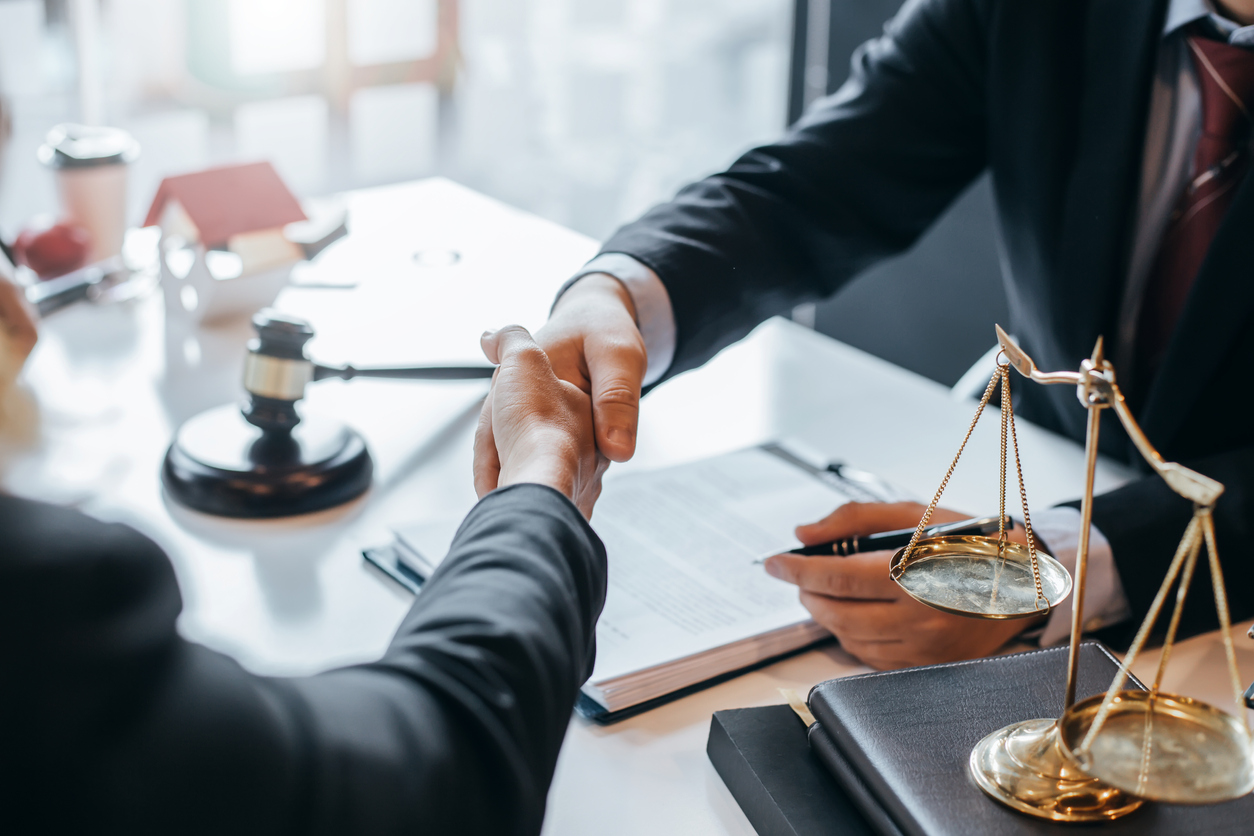November 27, 2022 | Personal Injury

Attorney-client privilege is a rule of evidence that prevents your lawyer from testifying about private communications between the two of you. A closely related concept is called attorney-client confidentiality. The purpose of both rules is to encourage clients to speak candidly with their lawyers.
Attorney-Client Privilege
The attorney-client privilege prevents your attorney from revealing confidential communications in court, and it also prevents a third party, such as a prosecutor, from compelling either you or your attorney to divulge such communications in court. The privilege applies to both criminal and civil proceedings. It endures even after the representation ends and, in most cases, even after the client dies.
The following elements must be present for attorney-client privilege to apply:
- You must communicate with a lawyer seeking legal advice;
- the lawyer must be acting in their professional capacity (casual advice at a cocktail party might not count, for example); and
- You must have intended for the communication to be private, and you must have acted accordingly.
The basic principle is that the lawyer must meet your reasonable expectations of privacy.
Attorney-Client Confidentiality
“Privileged” information and “confidential” information are different but related. Although all privileged information is confidential, not all confidential information is privileged. In other words, privileged information is a subset of confidential information.
Attorney-client confidentiality applies not only to attorney-client communications but also to all information gained during the representation. The attorney may not disclose this information to any third party, in or out of court, except as you permit.
Exceptions to Attorney-Client Privilege
Several major exceptions apply to the general attorney-client privilege rule.
Waiver
The attorney-client privilege is yours to demand or waive. It applies in full force unless you waive it. Your lawyer cannot waive the privilege on your behalf—only you can.
Public Settings
The privilege does not apply to public utterances. The communication must be private, or you must believe it is private—an eavesdropper cannot rob you of attorney-client privilege. You can forfeit the privilege if you speak loudly in public, for example, or if you speak to your lawyer over a prison phone (assuming the prison told you it monitors all conversations).
Initial Consultations
You are not yet a client at an initial consultation with a lawyer. So does attorney-client privilege apply? Court decisions are mixed, so it is best to confirm confidentiality with the lawyer at the beginning of your consultation.
Joint Representation
In unusual cases, the same lawyer represents more than one client. When this happens, one client cannot assert attorney-client privilege to gain an advantage over the other party.
Disclosure Is Necessary To Prevent Death or Serious Injury
You cannot expect privilege if you tell your attorney you plan to murder your spouse (for example). Attorney-client privilege does not apply if disclosure is necessary to prevent death or serious injury.
Disclosure Is Necessary To Prevent Fraud
You cannot rely on attorney-client privilege to preserve the secrecy necessary to commit fraud.
Corporate Counsel
Corporate counsel represents the corporation itself, not any specific individual within it, even the CEO. Your communications with corporate counsel are not privileged except to the extent necessary to protect the corporation.
Death of the Client
The privilege usually applies even if you die, except that a dead client cannot waive the privilege. However, under certain circumstances, the attorney-client privilege lapses when you die, such as in probate disputes.
Physical Evidence
You cannot keep a gun out of evidence by giving it to your lawyer. The attorney-client privilege protects communications, not objects.
Feel Free To Speak Candidly With Your Personal Injury Lawyer
Even if your lawyer violates attorney-client privilege or attorney confidentiality, the state cannot use anything they say against you, subject to the limited exceptions outlined above. Speaking truthfully and candidly with your lawyer will allow your lawyer to prepare the best representation for you. Move quickly, but select your lawyer carefully.
Contact the Oklahoma City Personal Injury Lawyers at McGuire Law Firm Today for Free Consultation
For more information, please contact the Oklahoma City personal injury law firm of McGuire Law Firm at our nearest location to schedule a free consultation today.
We serve throughout Oklahoma and its surrounding areas:
McGuire Law Firm – Edmond
200 E 10th Street Plaza
Edmond, OK 73034
United States
(405) 513-5658